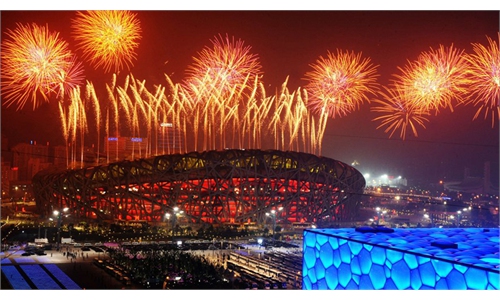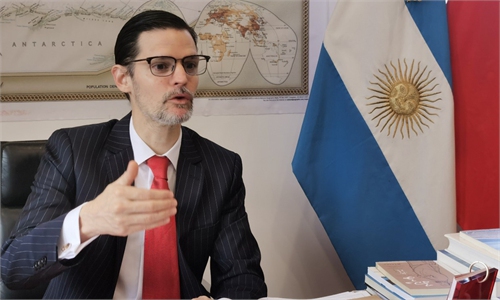
A press conference for the Beijing 2022 Winter Olympics at the Beijing Media Center on Saturday Photo:Zhang Hui/GT
For the Beijing 2022 Winter Olympic Games, Beijing's meteorological authority has forecast three cold air movements which could bring chilly northerly wind and snow to the capital, leading experts to analyze how the cold air will affect outdoor events.
The latest data shows that temperatures in the three competition zones of the Games have been close to normal levels over the past years, but three cold air waves are expected in the near future, Ji Chongping, an official with the Beijing Municipal Meteorological Bureau, said during a Saturday press conference for the Beijing 2022 Winter Olympics held at the Beijing Media Center.
The three rounds of cold air are expected to arrive around February 7, which could result in northerly winds, between February 11 to 13 to bring rain and snow, and around February 18, Ji said.
She said there are still uncertainties in the weather and that relevant departments will closely follow the weather and analyze how the cold air will affect the Games.
Ji said Beijing's weather authority updates weather forecasts for the core competition zones every 10 minutes, including temperature, humidity, wind and rainfall.
As for Polish luger Mateusz Sochowicz, who suffered an injury during a training session in November 2021 in Beijing, Beijing municipal government spokesperson Xu Hejian said at the press conference that Sochowicz has arrived in Beijing for the Games.
Beijing has set up 88 medical stations at stadiums in downtown Beijing and the Yanqing district to provide on-site medical care and transfer injured personnel, said Wang Jianhui, deputy director of the Beijing Municipal Health Commission.
Wang noted that in accordance with pandemic prevention and control requirements for the Winter Olympic Games, Beijing has divided Games-related cases into five categories: confirmed and suspected COVID-19 patients, patients with fever within the closed loop, other patients in the closed loop, patients with fever outside the closed loop, and other patients outside the closed loop.
Beijing will witness a surge in the migrant population in the following days as the Spring Festival holidays are about to end, and Wang said that Beijing will strictly follow rules on the returning population and strictly prevent the spread of COVID-19.
Beijing has set up warning mechanisms at airports and railway stations and regular testing mechanisms for employees in key industries, including the cold-chain and delivery sectors, to improve the detection of possible transmission, Wang said.
He said that Beijing will use multiple measures, including nucleic acid testing and big data technology, to ensure that transmission of the virus will be cut off within two incubation periods.
Global Times



